Filter by

The environmental rule of law for oceans: designing legal solutions
Our oceans need a strong and effective environmental rule of law to protect them against increased pressures and demands, including climate change, pollution, fisheries, shipping and more. The environmental rule of law for oceans requires the existence of a set of rules and policies at multiple governance levels that appropriately regulate human activities at sea and ensure that pressures on th…
- Edition
- -
- ISBN/ISSN
- 9781009253741
- Collation
- xxxiii, 380 pages; illustration
- Series Title
- -
- Call Number
- 341.4 POZ t

International courts versus non-compliance mechanisms: comparative advantages…
The effective implementation of treaties is essential. This book examines the advantages of non-compliance mechanisms (NCMs) versus that of international courts and tribunals to support treaty fulfilment. It brings together globally-recognised names in international law, human rights law, environmental and climate change law, and trade law.
- Edition
- -
- ISBN/ISSN
- 9781009373913
- Collation
- xx, 508 pages; illustration
- Series Title
- -
- Call Number
- 341.5 VOI i

Transforming food systems under climate change through innovation
Our food systems have performed well in the past, but they are failing us in the face of climate change and other challenges. This book tells the story of why food system transformation is needed, how it can be achieved, and how research can be a catalyst for change. Written by a global interdisciplinary team of researchers, it brings together perspectives from multiple areas including climate,…
- Edition
- -
- ISBN/ISSN
- 9781009227216
- Collation
- 254 p
- Series Title
- -
- Call Number
- 338.1 CAM t
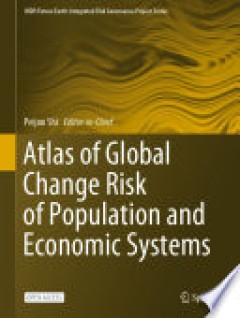
Atlas of global change risk of population and economic systems
This book is open access and illustrates the spatial distribution of the global change risk of population and economic systems with the maps of environment, global climate change, global population and economic systems, and global change risk. The risks of global change are mapped at 0.25 degree grid unit. The risk results and their contribution rates of the world at national level are unpreced…
- Edition
- -
- ISBN/ISSN
- 9789811666919
- Collation
- XXII, 278 p
- Series Title
- -
- Call Number
- 363.73874 SHI a
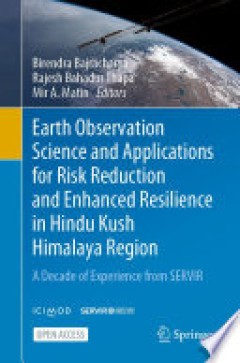
Earth observation science and applications for risk reduction and enhanced re…
This open access book is a consolidation of lessons learnt and experiences gathered from our efforts to utilise Earth observation (EO) science and applications to address environmental challenges in the Hindu Kush Himalayan region. It includes a complete package of knowledge on service life cycles including multi-disciplinary topics and practically tested applications for the HKH. It comprises …
- Edition
- -
- ISBN/ISSN
- 978-3-030-73569-2
- Collation
- -
- Series Title
- -
- Call Number
- 910.285 baj
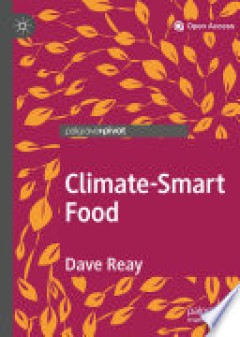
Climate-Smart Food
This open access book asks just how climate-smart our food really is. It follows an average day's worth of food and drink to see where it comes from, how far it travels, and the carbon price we all pay for it. From our breakfast tea and toast, through breaktime chocolate bar, to take-away supper, Dave Reay explores the weather extremes the world’s farmers are already dealing with, and what ne…
- Edition
- 1
- ISBN/ISSN
- 9783030182069
- Collation
- -
- Series Title
- -
- Call Number
- 641.30015516 DAV c
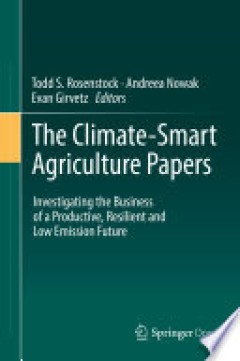
The climate-smart agriculture papers : investigating the business of a produc…
This book is open access under a CC BY 4.0 license. This volume shares new data relating to Climate-Smart Agriculture (CSA), with emphasis on experiences in Eastern and Southern Africa. The book is a collection of research by authors from over 30 institutions, spanning the public and private sectors, with specific knowledge on agricultural development in the region discussed. The material is…
- Edition
- Ed. 1
- ISBN/ISSN
- 9783319927985
- Collation
- X, 321
- Series Title
- -
- Call Number
- 333.7 Ros
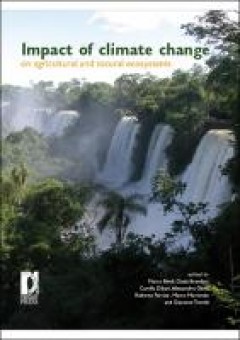
Impact of climate change on agricultural and natural ecosystems
This book illustrates the main results deriving from fourteen studies, dealing with the impact of climate change on different agricultural and natural ecosystems, carried out within the Impact of Climate change On agricultural and Natural Ecosystems (ICONE) project funded by the ALFA Programme of the European Commission. During this project, a common methodology on several Global Change-related…
- Edition
- -
- ISBN/ISSN
- 9788884539212
- Collation
- 244 p. : ill.
- Series Title
- -
- Call Number
- 551 MAR i
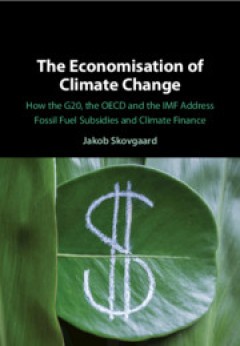
The economisation of climate change : how the G20, the OECD and the IMF addre…
The effort to address climate change cuts across a wide range of non-environmental actors and policy areas, including international economic institutions such as the Group of Twenty (G20), International Monetary Fund (IMF), and the Organisation for Economic Co-operation and Development (OECD). These institutions do not tend to address climate change so much as an environmental issue, but as an …
- Edition
- -
- ISBN/ISSN
- 9781108688048
- Collation
- xvii, 298 p. ; ill
- Series Title
- -
- Call Number
- 333.72 SKO t
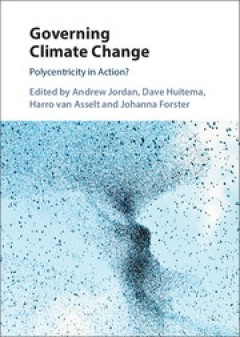
Governing climate change : polycentricity in action?
Climate change governance is in a state of enormous flux. New and more dynamic forms of governing are appearing around the international climate regime centred on the United Nations Framework Convention on Climate Change (UNFCCC). They appear to be emerging spontaneously from the bottom up, producing a more dispersed pattern of governing, which Nobel Laureate Elinor Ostrom famously described as…
- Edition
- -
- ISBN/ISSN
- 9781108284646
- Collation
- xv, 408 p. ; ill
- Series Title
- -
- Call Number
- 363.7387453 HUI g
 Computer Science, Information & General Works
Computer Science, Information & General Works  Philosophy & Psychology
Philosophy & Psychology  Religion
Religion  Social Sciences
Social Sciences  Language
Language  Pure Science
Pure Science  Applied Sciences
Applied Sciences  Art & Recreation
Art & Recreation  Literature
Literature  History & Geography
History & Geography